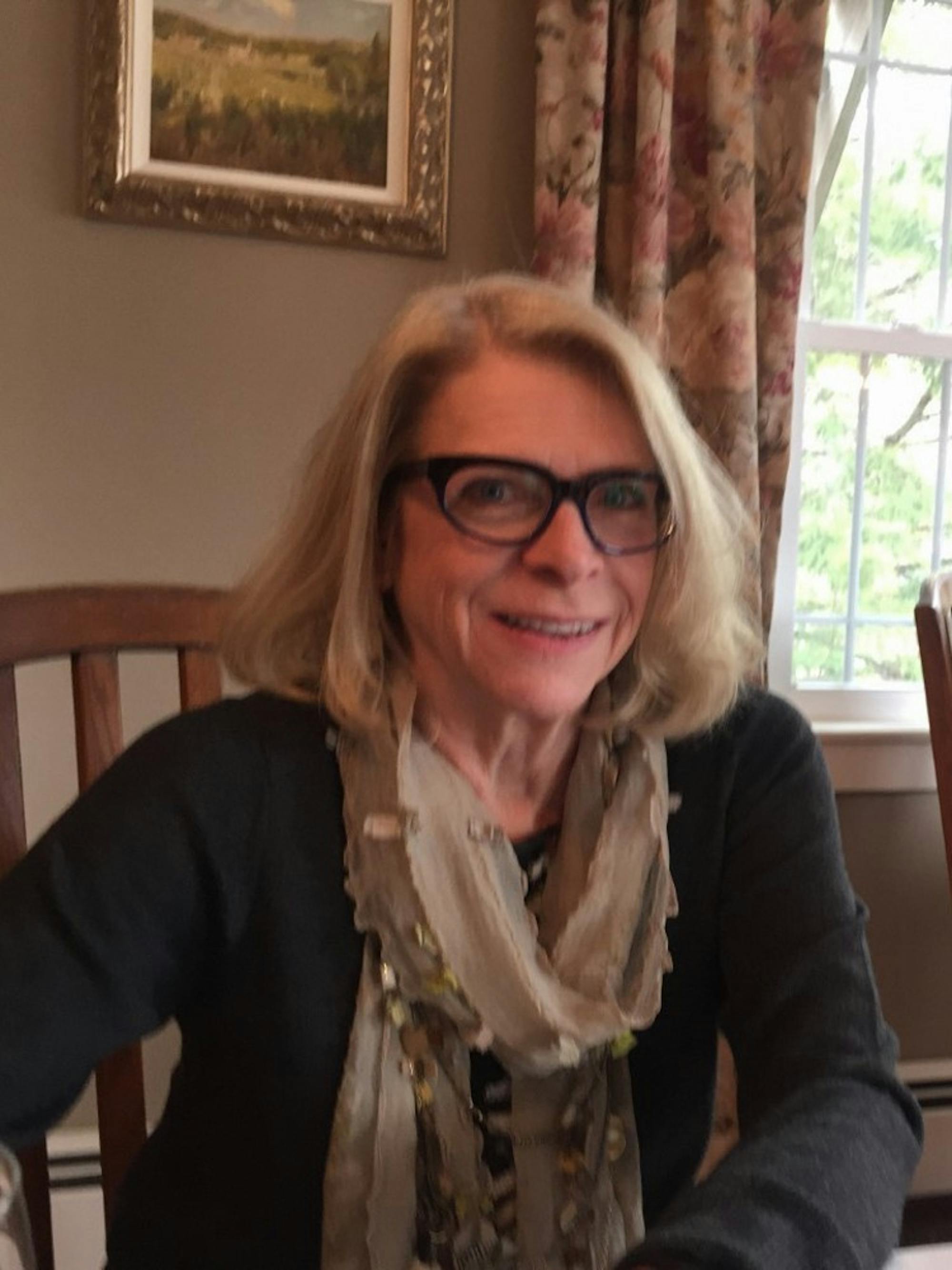Vice president for information technology and chief information officer Ellen Waite-Franzen will be stepping down from her 10-year post at the College this summer after spearheading several initiatives as CIO.
Waite-Franzen helped make the switch from Blackboard as the learning management system to Canvas; built a team of instructional designers to work with faculty and improve classes; helped Dartmouth enter the massive open online course world; created a Research Computing team that works with faculty on their research agendas; redesigned and standardized the websites across academic departments; and developed data warehouses for online administrative systems.
Waite-Franzen came to Dartmouth after serving as vice president for computing and information services at Brown University and CIO at the University of Richmond. She said that her retirement comes at a fitting time since the Information Technology Services department is in a good place right now, with stable systems and great staff.
“It’s always better to leave when things are going well,” she said.
Waite-Franzen recalled several changes in recent years that the department adjusted to as technology evolved. Prior to the advent of smartphones, students typically had one device that would require a network connection; now students have a minimum of three. Consequently, the ITS department has had to extend its wireless network to be more dependable, she said.
One example of this is making GreenPrint more reliable, she said. The ITS department has monitored the technology more closely in recent years and has appointed students to assist in keeping the printers up and running.
Other department responses to 21st century technology include making websites mobile-friendly, creating new ITS infrastructure and switching from the 25-year-old Blitzmail system to Office365. Waite-Franzen said her role as well as that of the department has changed with advancing technology, driven by an increased emphasis on security and cloud-based solutions like Office365.
Nonetheless, the new wave of technology in the past 10 years has not brought a viable alternative to Dartmouth’s Banner Student, she said, which is her only regret.
“It’s a very complex system, built on very old and highly customized technologies but there aren’t viable alternatives out there yet,” she said. “We are seeing developments on the horizon — mainly WorkDay and Oracle — and I think in three to five years, a full-featured system will be available.”
When the time to replace Banner Student does come, the ITS department will likely consult one of its student steering committees that it reaches out to when it is considering a new system, she said. This is how the ITS department decided to make the switch from Blackboard to Canvas, she said.
Bringing Dartmouth’s technology into the 21st century, however, was not without its challenges.
“Steering an IT organization at an Ivy League institution through such an era of change is a tall order,” assistant director of educational technologies Barbara Knauff said.
Among these challenges are hackers that are always trying to breach systems to steal data, Waite-Franzen said.
“Our security team and the IT infrastructure staff work hard to stay ahead of the issue and we have in place many more measures than we had 10 years ago, but it is a moving target,” she said.
This and another technological shift on the horizon will be a challenge for the next CIO, she said. Chief of technology officer Joseph Doucet will be filling that role for the time being in an interim capacity.
He said that his main goals during this time will be to continue to build services that are in line with Dartmouth’s education and research objectives. This means enhancing Dartmouth’s wireless services in residence halls, developing DartmouthX courses and handling all of the budgetary and organizational logistics of the ITS department, he said.
The hiring search process for a new vice president will commence this summer and will likely take a year, Waite-Franzen said.
After having spent so much time in the ITS department, Knauff said that Waite-Franzen will be missed.
“I’ll really miss her attention to and acknowledgement of the personal potential and contribution of everyone in the department,” she said.
Doucet described Waite-Franzen’s positive impact on the College’s technology environment as evidence of her accomplishments.
“I think the mark of a good executive is someone who leaves their organization in better shape than they found it,” Doucet said. “I think on that score Ellen has done exceptionally well.”
Next on the agenda for Waite-Franzen is to find a new place to live and to peruse the interests that she has not been able to pursue like photography, writing and fashion. Furthermore, she may open up a new gallery, in addition to her Woodstock Gallery in Vermont, and perhaps do some consulting for smaller liberal arts institutions.




